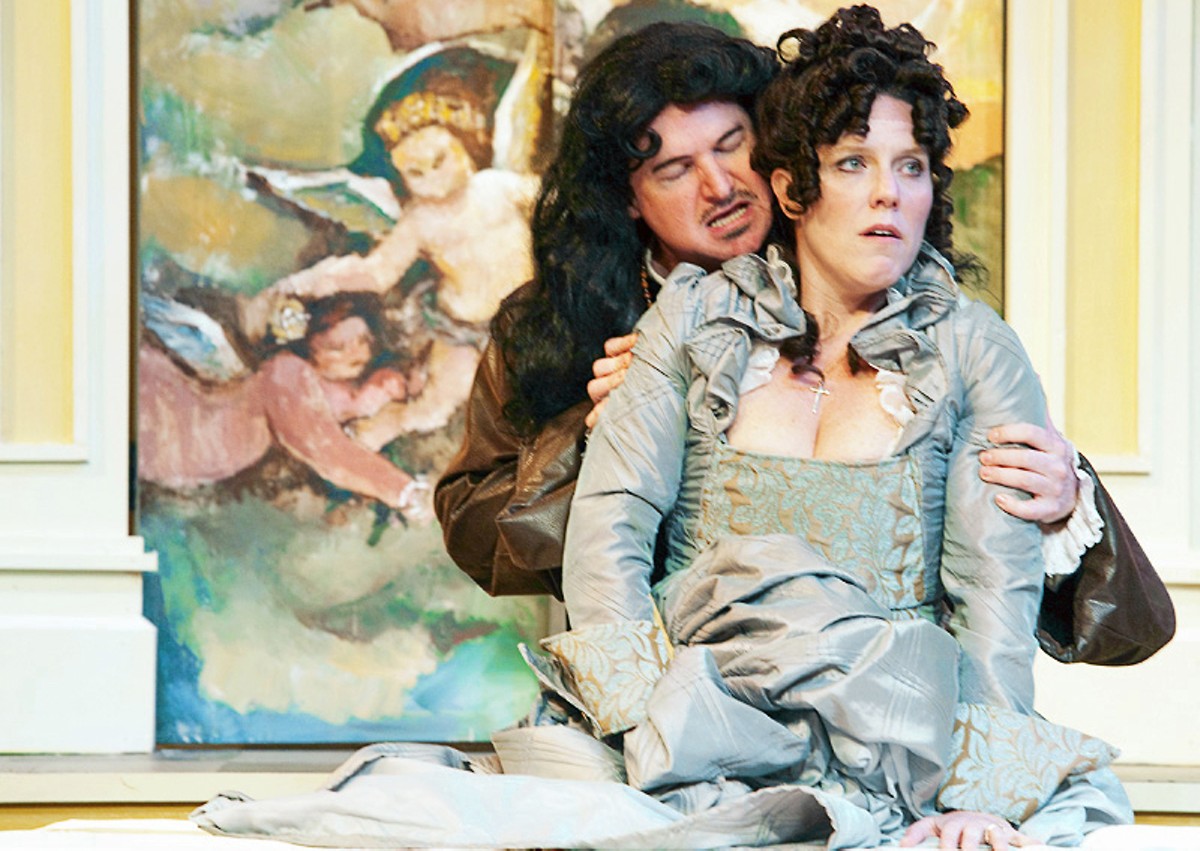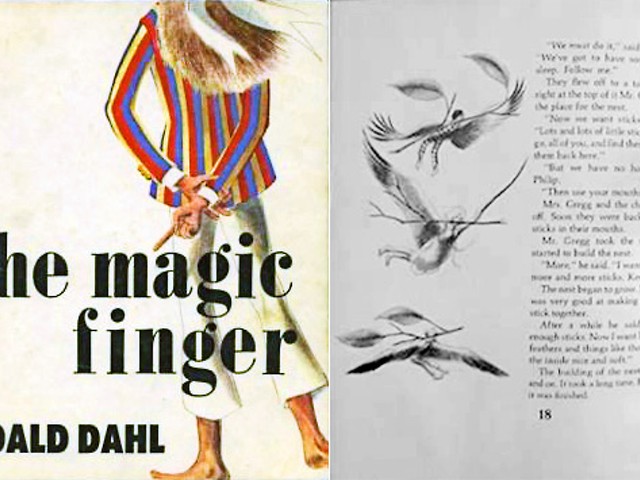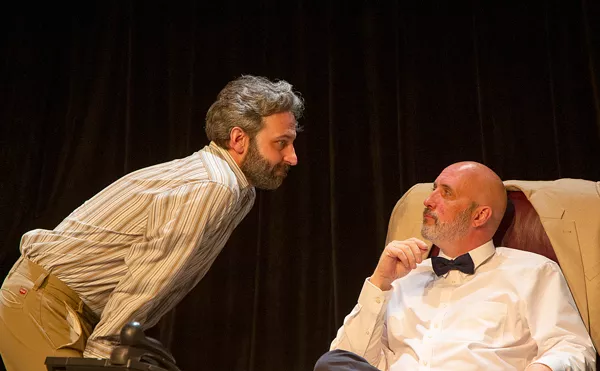Because Tartuffe, Molière's seventeenth-century travesty about deception, seduction and the perils of extremism, is one of the most enduring comedies in all world literature, contemporary revivals now feel free to play fast and loose with the story's locale and time frame. One recent local staging was set in the Wild West; another was influenced by Cirque du Soleil. So how refreshing it is — and how almost original it feels — that the current Mustard Seed version, directed by Deanna Jent, restores the action to Paris in the 1660s. Even before this production begins, Dunsi Dai's soothing scenic design, a symmetrical assemblage of chandeliers and cherubs, informs us that Orgon and his much put-upon family are back home where they belong.
Jent's next wise decision was to use the nimble 1963 translation by Pulitzer Prize-winning poet Richard Wilbur. When Wilbur first published his script, he included a rather defensive introduction that suggested contemporary audiences are willing "to put up with" rhymed verse on the stage. Indeed they are, especially when those verses are hilarious. At the opening-night performance, audience members young and old, male and female, were leaning forward on their chairs, savoring every surprise. Wilbur's rhymes do not slow down the play; if anything, they musicalize it. Perhaps it's because there has been so much ado of late about Stephen Sondheim's 80th birthday, but listening to this mellifluous Tartuffe was like hearing the lyrics to a sung-through musical. Wilbur and Sondheim share an intuitive intelligence and a love of vocabulary.
Molière's classic plot primarily concerns Orgon, a member of the French upper class who has turned to religion to assuage his midlife crisis. He has befriended Tartuffe, a crass opportunist who fakes piety in order to rob and even cuckold his newfound protector. Although Orgon's wife, daughter and brother-in-law are aware that the family's very stability is at risk, it falls to Dorine, the saucy maid, to try to restore the intransigent Orgon to sense and sensibility.
So begins an evening of round-robin acting — first in scenes between Orgon and Dorine, then between Dorine and Tartuffe, and finally in the exchanges between Tartuffe and Orgon. All three roles are delightfully cast. As Orgon, J. Samuel Davis is entirely in harmony with Wilbur's rhymed couplets. Colleen Backer's Dorine sets the sprightly tone. In an evening where bad things befall almost everyone onstage, Dorine remains a constant (if exasperated) voice of reason. Once again, as she has so often in the past, Backer becomes the production's North Star. Regardless of whether she's called upon to enact brittle comedy (The Importance of Being Earnest), sentimental frivolity (You Can't Take It With You) or plaintive sadness (Morning's at Seven), Backer has the uncanny ability to personify the playwright's intentions. She is one of our most reliable, if unintentional, clowns.
It's inevitable that eventually Gary Wayne Barker and Tartuffe would find each other. This is a combination of actor and role waiting to combust. Although Tartuffe does not even appear onstage for the first 40 minutes, this audacious confidence man is so deliciously vile that, in the hands of a wily actor, he cannot help but claim the stage. Adorned in an ascetic black wig that looks like one of Cher's early castoffs and behaving in a brusque manner that might have been inspired by old Wallace Beery movies, Barker revels in his rough-hewn charlatanism — never more so than when he is impaling himself on a cross of his own invention. No surprise then that like Orgon, everyone in the audience becomes "Tartuffe-ified."
In addition to these three adept troupers, at evening's end we're given a final, unexpected gift with the arrival of Richard Lewis as a bailiff who apparently is en route to a Halloween masquerade disguised as Sir Andrew Aguecheek. Lewis' burst of comic energy is the final exclamation point that renders this Mustard Seed Tartuffe an evening of sustained merriment.






